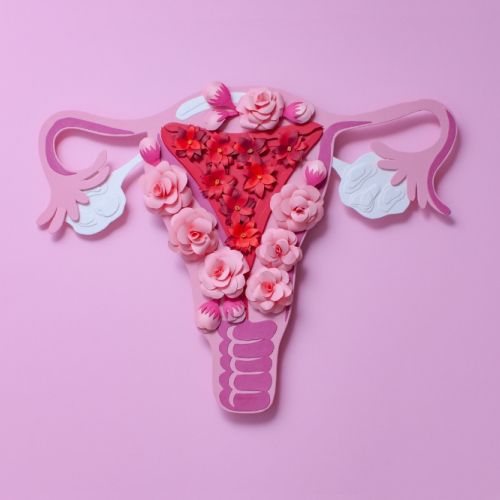How to Boost Fertility in Your 30s

If you’re having difficulty getting pregnant in your 30s, you’re not alone. While some women are still able to conceive in their early 30s, your chances of getting pregnant as you approach 40 declines, and the risk of complications including miscarriage increases. The team of fertility experts at the Center for Reproductive Health is available to provide detailed information on how to boost fertility in your 30s so you can be proactive about doing whatever you can to attain a healthy pregnancy.
Foods That May Help Increase Fertility
A healthy diet is an important component of overall health. When you’re trying to get pregnant, whether you’re a woman or a man, it’s important to include plenty of natural foods in your diet such as whole grains, vegetables, fruits, and lean proteins. Fatty fish such as salmon and tuna provide a healthy source of unsaturated fats which support cell growth and can help to lower cholesterol. Limit sugar and saturated fats to help boost fertility.
Women who are trying to get pregnant should begin taking prenatal vitamins to ensure the consumption of important nutrients. Prenatal vitamins can help to improve egg quality.
Reduce Stress
Being under a lot of stress, especially on a long-term basis, can wreak havoc on your body and make it more difficult to get pregnant. Since stress has been proven to impact fertility, focusing on methods of stress reduction may help boost your fertility. Consider delegating tasks to others if possible. Other ways to reduce stress include:
- Meditation
- Yoga
- Aromatherapy
- Massage
- Listening to music
Journaling is a good way to process turbulent emotions, such as frustration over not getting pregnant. Be sure you’re getting enough sleep to help better cope with stress and to help increase fertility. Try to get 7 to 8 hours of sleep each night.
Other Healthy Habits
To give yourself the best chance of a healthy pregnancy, work on getting your weight to a healthy range. Women whose body mass index (BMI) is considered too high or too low can have a harder time getting pregnant. Regular exercise can help improve your overall health and can help you work toward improving your BMI. Choose a form of exercise you enjoy such as walking, swimming, or dancing.
If you or your partner smokes, it’s imperative that you quit if you’re hoping to boost fertility in your 30s. Smoking has a negative impact on reproductive health in both women and men. It can make it harder to get pregnant and it increases the risk of complications during pregnancy.
Excessive amounts of alcohol can interfere with bodily processes and should be avoided when trying to get pregnant. Both alcohol and caffeine can make it more difficult to get pregnant.
When you’re trying to boost fertility in your 30s, reach out to the compassionate fertility professionals at the Center for Reproductive Health. We’re available to answer any questions you may have and are committed to helping you have the best chance of attaining a healthy pregnancy. Click here to make an appointment.
Eliran Mor, MD
Reproductive Endocrinologist located in Encino, Valencia & West Hollywood, CA
FAQ
What does a reproductive endocrinologist and infertility specialist do?
Reproductive endocrinology and Infertility is a sub-specialty of Obstetrics and Gynecology. In addition to managing medical and surgical treatment of disorders of the female reproductive tract, reproductive endocrinologist and infertility (REI) specialists undergo additional years of training to provide fertility treatments using assisted reproductive technology (ART) such as in vitro fertilization.
Reproductive endocrinologists receive board certification by the American Board of Obstetrics and Gynecology in both Obstetrics and Gynecology and Reproductive Endocrinology and Infertility.
When should I see an REI specialist?
In general, patients should consider consulting with an REI specialist after one year of trying unsuccessfully to achieve pregnancy. The chance of conceiving every month is around 20%, therefore after a full year of trying approximately 15% of couples will still not have achieved a pregnancy.
However, if a woman is over the age of 35 it would be reasonable to see a fertility specialist earlier, typically after 6 months of trying.
Other candidates to seek earlier treatment are women who have irregular menses, endometriosis, fibroids, polycystic ovary syndrome (PCOS), women who have had 2 or more miscarriages, or problems with the fallopian tubes (prior ectopic pregnancy).
What are the reasons we are having trouble conceiving?
Approximately 1/3 of the time cause for infertility is a female factor, 1/3 of the time a male factor, and the remaining 1/3 a couples’ factor.
At CCRH, we emphasize the importance of establishing a correct diagnosis. Both partners undergo a comprehensive evaluation including a medical history and physical exam.
Furthremore, the woman’s ovarian reserve is assessed with a pelvic ultrasound and a hormonal profile. A hysterosalpingogram (HSG) will confirm fallopian tube patency and the uterine cavity is free of intracavitary lesions. A semen analysis is also obtained to evaluate for concentration, motility, and morphology of the sperm.
Additional work up is then individualized to direct the best possible treatment option for each couple.
What is IVF? What is the process like?
In vitro fertilization (IVF) is the process that involves fertilization of an egg outside of a woman’s body.
The process starts with fertility drugs prescribed to help stimulate egg development. In your natural cycle, your body is only able to grow one dominant egg, but with stimulation medication we can recruit multiple eggs to continue to grow. After about 8-10 days of stimulation, the eggs are surgically retrieved and then fertilized with sperm in a specialized laboratory. Fertilized eggs are then cultured under a strictly controlled environment within specialized incubators in the IVF laboratory for 3-5 days while they develop as embryos. Finally, embryos (or an embryo) are transferred into the uterine cavity for implantation.
Should I have IVF?
Before deciding if IVF is the right choice, it’s important to sit down with an REI specialist to discuss available treatment options. For some people, other methods such as fertility drugs, intrauterine insemination (IUI) may be the best first choice treatment. At CCRH, we believe each individual couple is unique and not everyone needs IVF.
Is the IVF procedure painful?
While not painful, the fertility medications may some side effects including headaches, hot flashes, mood swings, and bloating. The injection sites may also bruise.
Will IVF guarantee a baby?
Unfortunately, no. Many people think once they start IVF it’s a matter of time that they will be pregnant and have a baby. But according to national statistics per the Society of Assisted Reproduction (SART), on average 40% of assisted reproduction cycles achieve live births in women under age 35. The chances of success then continue to decrease with advancing age.
At CCRH, we employ only evidence-based interventions to ensure patient safety and optimal outcome. While we cannot guarantee a baby, we guarantee that you will receive the best, most advanced, personalized care to help you maximize your chance of a baby.
What is the success rate for IVF?
The average IVF success rate (success measured in live birth rate) using one’s own eggs begins to drop around age 35 and then rapidly after age 40. This is due to the decline in egg quantity and egg quality as a woman ages.
Our clinic’s success rate consistently beats the national average year after year.
Do insurance plans cover infertility treatment? How much does IVF cost?
Individual insurance plans often do not have any coverage for infertility treatments. If you have a group plan, you can call members services to see if they have coverage for infertility (including consultation/workup and IVF).
After your consultation with our REI specialist, one of our dedicated account managers with sit with you to go over the cost of treatment.




